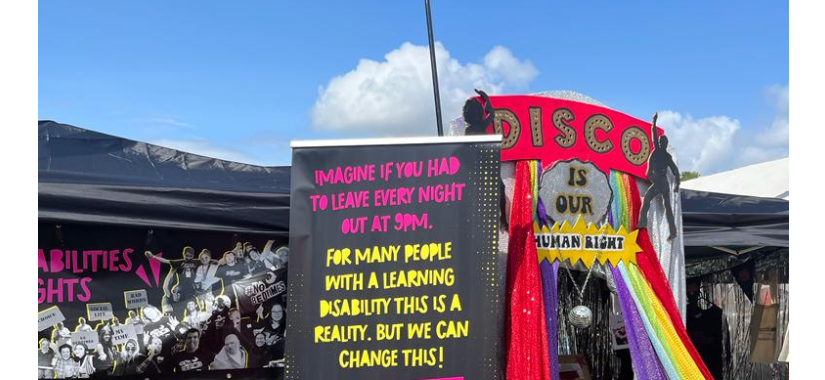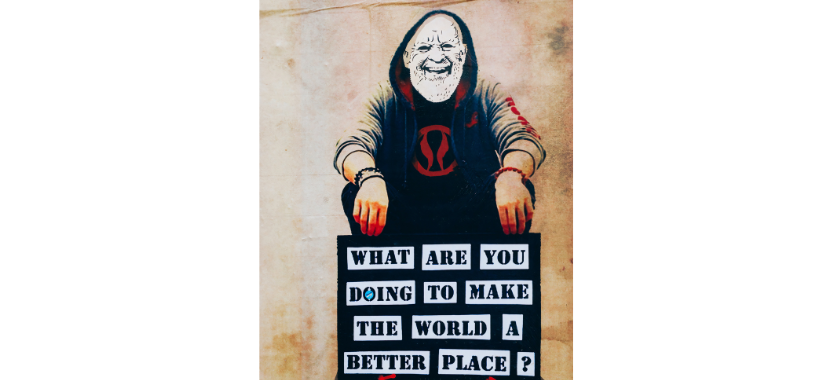
What is the most common question we get asked at Glastonbury Festival?
What is the most common question we get asked at Glastonbury Festival?
The answer is simply ‘Why?’
This is a short post reflecting on this year’s Glastonbury. Every year we have a big banner saying ‘Imagine if every night ended at 9 pm’.
Many people with no background in social care or with no friends or family with learning disabilities ask us ‘why’? They don’t understand why this is an issue.
When we tell them it’s down to inflexible support, an inability to plan ahead and adjust rotas, and a culture of ‘that’s the way it is,’ they are frankly appalled.
It’s not an issue they’ve considered, but it connects with them. They don’t have people in their lives telling them what time to go to bed, so why should people with learning disabilities?

So our question is also ‘why?’
Why is this still an issue?
Why aren’t support workers challenging the cultures they’re working in?
Why aren’t managers looking to those who lead flexible cultures and make good lives possible?
Why aren’t CEOs bothered that they’re not practising what they preach when they exclaim on their websites, ‘We make person-centred approaches’?
Why aren’t local authorities insisting that people are supported to have good social lives?
Because we all know loneliness contributes to poor health and early death.
And we genuinely want to know the answers to this from the people perpetuating these inflexible cultures.
And by contrast, this year at Glastonbury, we met people with learning disabilities having the times of their lives whilst volunteering with Water Aid and Drag Syndrome were performing for thousands of people in Shangri-La.
Another way is possible because we know loads of excellent support staff and managers who show leadership and genuinely care about the people they are supporting.
Why can’t we have more of this?
Why?
Do you work in a culture where you’re not able to support people the way you really want to?
Do you work in a place where you are supporting people to live the lives they want?
We’d love to hear from you and find out more about what’s going on.


